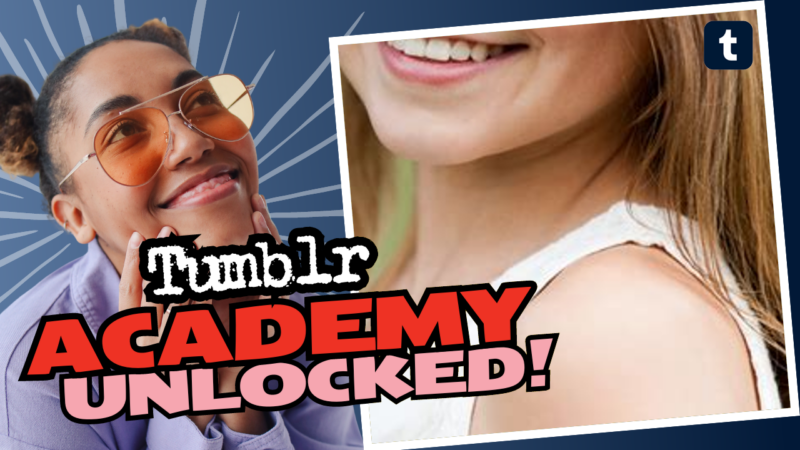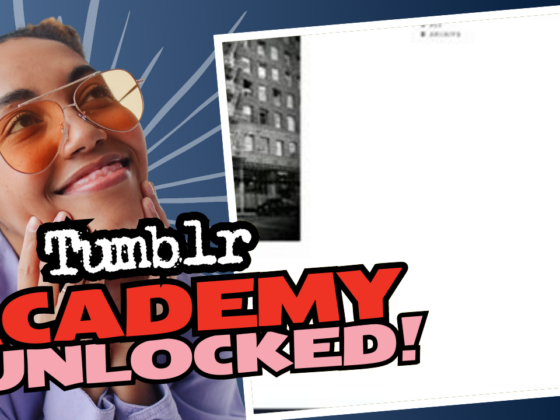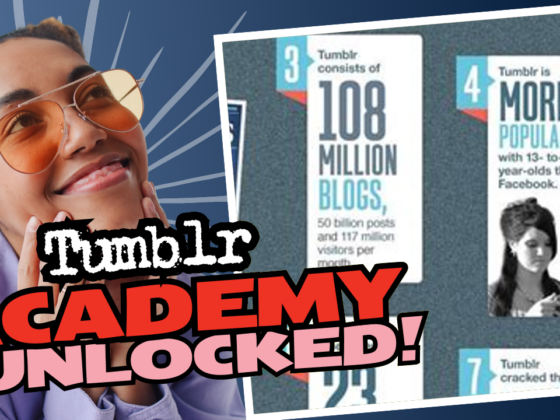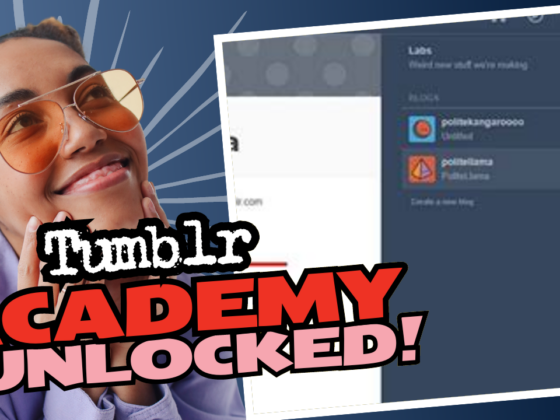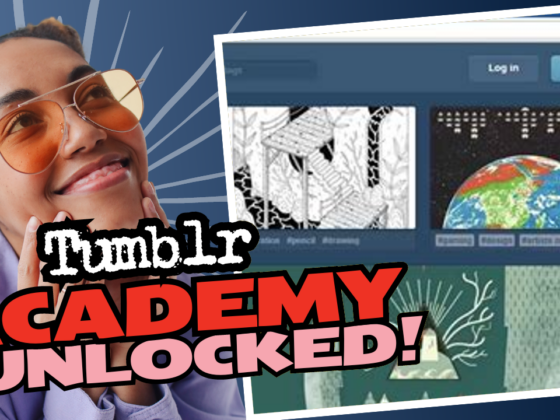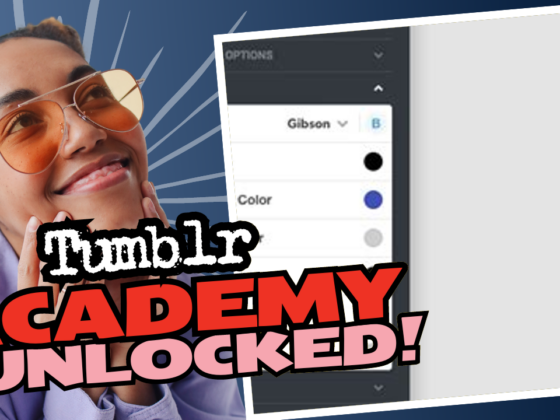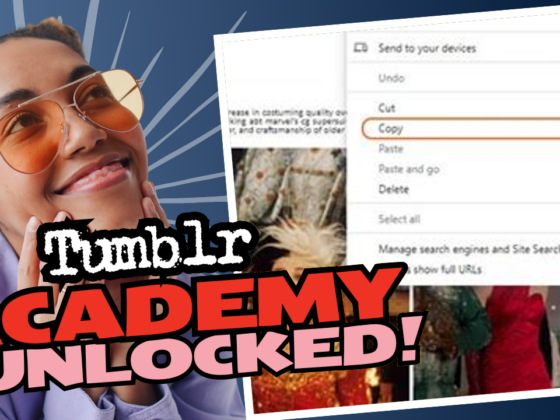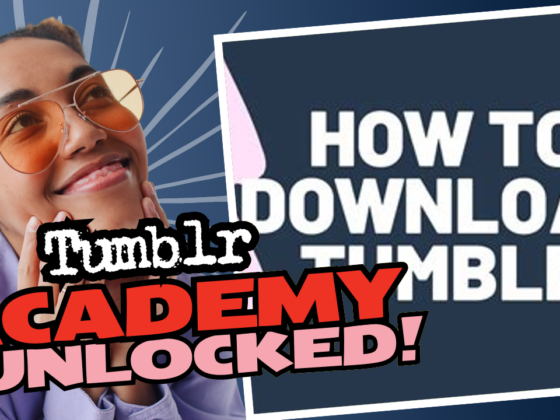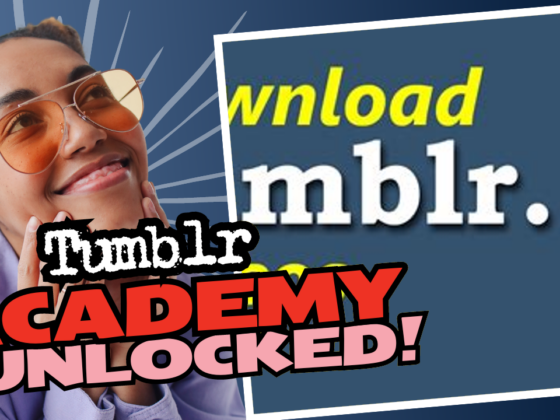Is Tumblr Okay for 12-Year-Olds? Let’s Dive In!
So, we’ve got a loaded question on our hands: “Is Tumblr okay for 12-year-olds?” First things first, let’s clear the air. The internet is like a massive, unpredictable rollercoaster ride—sometimes exhilarating, other times vomit-inducing. Whether it’s Tumblr or any other platform, the vibes are different now than they used to be, and not all of them are kid-friendly. So grab your helmets; we’re about to dive into this chaotic realm of teenage online engagement!
The Internet Then vs. Now: A Smorgasbord of Change
Back in the day, when we were mere digital toddlers, the internet felt like a cozy treehouse you could sneak away into. You could find your tribe, discuss your weirdest interests (hello, *Sailor Moon* fan art!), and maybe run into the occasional creepo. But today? Oh honey, welcome to the jungle where not only do you have predators, but you have misinformation, extreme ideologies, and just a sprinkle of good old-fashioned toxic behavior bubbling up everywhere.
Imagine walking into your favorite candy store only to find it’s filled with steaming piles of… well, let’s just say undesirable substances. That’s what the internet can feel like for kids today, and it’s even more disheartening because advertisers want to monetize every second of your attention. Kids become literal *money-printing machines for corporations* looking to make a buck, and along the way… let’s just say some of that stuff ain’t good.
What’s Wrong with Tumblr?
So where does Tumblr fit in this digital menagerie? Well, MTV once told us that video killed the radio star, but let’s be real—Tumblr is a treasure trove of everything from adorable cat GIFs to intensely graphic content. Depending on how you navigate, it can become a *breeding ground for hyper-obsessive fandoms, artistic expression, or, on the flip side, areas that can scar a young soul for life.*
Here’s the kicker: Tumblr has a history of fostering communities that can be wholesome, weird, and downright wild. On one hand, it’s a platform for marginalized voices, sexual expression, and exploring identities. On the other hand, it can lead kids down the rabbit hole of exposure to themes they might not be ready for, like sexual content, violent themes, or even toxic activism. Are we surprised? Not at all!
Unsupervised Browsing: Just Don’t. Seriously.
Here’s a no-brainer: kids under 18 (let alone 12) should absolutely not have *unsupervised* access to Tumblr. Think about it. Would you hand a kid the keys to your car and say, “Good luck, champ! Don’t drive into a ditch”? Of course not! The same principle applies here. While a small amount of unsupervised internet access can be beneficial for autonomy and learning, the risks outweigh benefits when it comes to sites that have an unfiltered flow of content.
Kids and teens are curious creatures. When they explore this vast world without guide rails, they might stumble upon things that are disturbing or inappropriate for their age—it’s like sending them on a hike, without a map. Yikes!
The Parental Guidance Thing
You might be asking, “So, what’s a parent to do?” The golden ticket lies in supervision and communication. Think of it like being a lifeguard stationed at the pool. You can let them swim, but you need to keep an eye out for those “no diving” signs.
- Set Boundaries: Get involved in their online life. Set up rules on what they can and can’t access.
- Teach them to Surf Wisely: Equip them with the right tools to navigate the chaotic waters of the internet. Teach them about online safety, privacy, and spotting red flags.
- Open Communication: Cultivate an environment where kids can talk about what they see on the internet without fear of judgment. This builds trust and opens the door to necessary discussions.
The Double-Edged Sword of Information
Here’s the thing: while the internet can be a dark abyss of sketchy content that badgers young minds, it can also be a powerful *tool for self-discovery and connection*. Many individuals have expressed that exposure to diverse perspectives prepared them for a broader worldview, especially if they come from more sheltered environments. I mean, I learned about queer identities and social issues WAY before the local library became my go-to for educational material!
But wait, there’s a caveat! Too much exposure, especially to extreme or jarring content, can also lead to confusion and anxiety. Gory videos? Nope, not suitable for pre-teens. Dating applications? Heck no. Political propaganda? Not on their watch! So, balancing is key.
The Parental Balancing Act: The Struggle is Real
Like, can we take a moment to appreciate what today’s parents are up against? In the 1980s and ’90s, sure, kids might’ve roamed the streets unsupervised, but today they’re wrestling with *He Who Shall Not Be Named* (thank you, TikTok). They also have to process crazy concepts like *cancel culture* or react to a barrage of influencers shaping their views. Just look at my niece! She has unfettered access to social media. I can hear the cringe-worthy comments she makes while playing *Roblox*, and frankly, it’s concerning.
That being said, parental values heavily shape the type of media consumption kids will engage with. Just as some parents might let their kids explore unsupervised, others are on high alert. The dialogue needs to happen!
Finding a Middle Ground: The Paradox of Freedom vs. Safety
But hold your horses! It’s not all doom and gloom. While some freedom allows kids to explore their identities, gain independence, and even process complex feelings, they should definitely operate within a framework of safety. This ultimately means that some supervised internet access can lead to *fantastic discoveries*. For some, it’s a lifeline to communities where they feel accepted, or perhaps it equips them with emotional support. Yet, never forget that the internet can be a black hole of negativity that could leave scars!
Establish a nuanced approach. Allow them time on Tumblr, but package it with discussions around the content they find. Ask them questions, validate their curiosity, and zone in on those *weird things* they might encounter. Use these moments to teach and guide them to remain critical of the content they consume.
Handling Parental Worries: The Age of Misinformation
Closing this off, it’s safe to say that the complexity surrounding the internet, especially Tumblr, presents challenges that parents in our day couldn’t have dreamed of. While your parents might have tossed you into the world to find yourself as if happy accidents were just around the corner, today’s risks are amplified by corporations that prey on kids and spread *dangerous misinformation.*
If parents protect their kids thoughtfully while fostering their autonomy, kids can scarce land on their feet without falling into the internet gutter. They can express themselves freely and discover new things while being smart about what they consume and where they put their click-happy fingers.
At the end of the day, navigating the wild wild world of internet and social media will require a delicate dance of support, supervision, and freedom. Just don’t forget that parenting in this realm is not about restricting access; it’s about teaching your kids to be savvy explorers rather than naive wanderers in a sea of content.
TL;DR: Should 12-Year-Olds Use Tumblr?
In short? No unsupervised access! Kids should dive into the internet with the right life jackets and buddies at their side (i.e., parents). It is chaotic out there, and while Tumblr has its treasures, parents need to ensure their kids aren’t navigating that landscape alone. Keep it fun, keep it educational, and keep it safe, folks!

